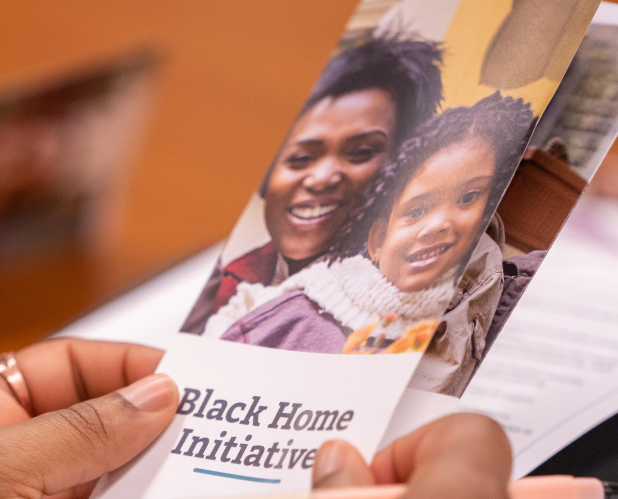Homeownership is one of the foundational building blocks for wealth creation, providing families with economic stability and an anchor to their community. However, the benefits of homeownership are not always available to everyone. Long-standing systemic inequities—from redlining and restrictive covenants to the limited supply of affordable housing in low-income neighborhoods—continue to challenge Black families and other people of color in achieving their dream of owning a home.
Civic Commons is driving transformational change to promote racial justice. In 2021, Civic Commons launched Black Home Initiative (BHI), a multi-county network of 100+ partner organizations from every area of the affordable housing market. BHI targets racial inequities at the core of the housing ecosystem to help ensure that the opportunity to own a home is available to all low- and moderate-income Black households in the metro Seattle–Tacoma area who want one.
With a goal to generate 1,500 new Black homeowners in Greater Seattle by 2028 and 3,000 by 2033, BHI’s Policy Network mobilized 120 advocates who were instrumental in the Washington State Legislature’s passing of the Covenant Homeownership Act. This crucial piece of legislation provides up to $100 million in closing costs and down-payment assistance for those impacted by racially restrictive covenants. BHI has also initiated programs that provide low-interest development loans for Black, Indigenous and People of Color (BIPOC) housing developers, funding for BIPOC-run nonprofits that support Black homeownership and a debt reduction fund that provides grants up to $25,000 to help potential homebuyers pay off debts that might otherwise limit mortgage acquisition.
“The strength of BHI comes from the unique way we leverage the incredible knowledge and collective muscle of our partners to build more rungs on the homeownership ladder,” said Michael Brown, Chief Architect at Civic Commons. “Communities across the country are looking to replicate our program and our successes. We’re committed to sharing what we’ve learned about network-weaving and its power to achieve outcomes far greater than any one entity could achieve alone.”
